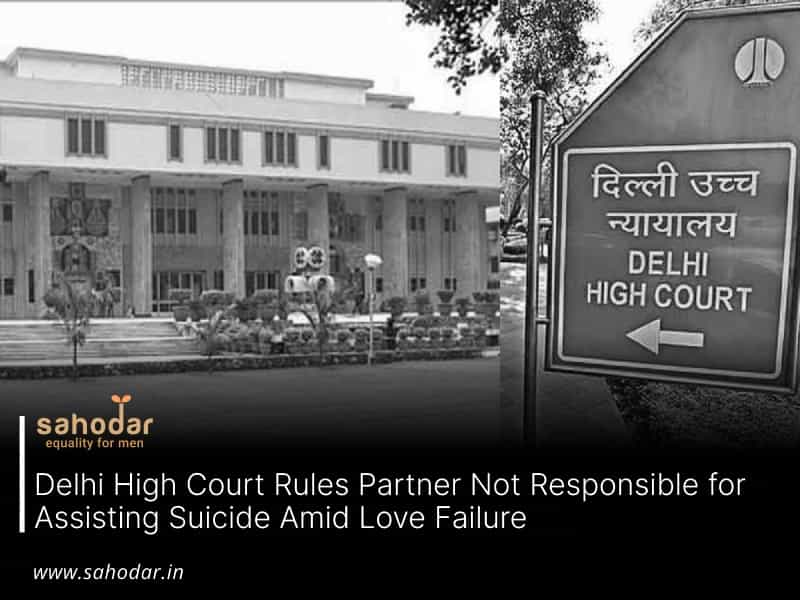The Court further said that if a student fails an exam or a client loses a case and commits suicide for such reasons, the examiner or the lawyer cannot be held liable either for suicide abetment.
Recently, the Delhi High Court noted that when a lover takes their own life due to romantic disappointment, their partner cannot be deemed responsible for abetting the act.
Likewise, Justice Amit Mahajan pointed out that if a student ends their life due to academic underperformance or a client commits suicide following a court’s dismissal of their case, neither the examiner nor the lawyer can be held culpable.
“If a lover commits suicide due to love failure, if a student commits suicide because of his poor performance in the examination, a client commits suicide because his case is dismissed, the lady, examiner, lawyer respectively cannot be held to have abetted the commission of suicide. For the wrong decision taken by a man of weak or frail mentality, another person cannot be blamed as having abetted his committing suicide,” the Court stressed.
The Court delivered these remarks as it granted anticipatory bail to a man and a woman accused of abetting suicide, following the death of a young man.
The woman, known to have been romantically involved with the deceased, tragically took his own life upon seeing the two accused together.
Allegations surfaced that the accused duo influenced the deceased by claiming they were engaged in intimate acts and planned to marry imminently. Moreover, they purportedly denigrated the deceased’s masculinity, urging him to end his life or face the threat of his broken car window images circulated online, accompanied by derogatory remarks.
Justice Mahajan, after reviewing the evidence, noted from the WhatsApp exchanges submitted that the deceased exhibited a sensitive disposition, frequently resorting to suicide threats whenever the woman declined communication with him.
“It is correct that the deceased had written the name of the applicants in suicide note, but, in the opinion of this Court, there is nothing mentioned, as to the nature of threats in the alleged suicide note written by deceased of such an alarming proportion so as to drive a ‘normal person’ to contemplate suicide,” the Court noted.
The court also remarked that the accusation of the accused mocking the deceased regarding his unsuccessful romantic relationship with the woman didn’t seem to constitute the type of provocation qualifying as abetment of suicide under Section 306 of the Indian Penal Code (IPC).
Consequently, the court went on to approve anticipatory bail for both defendants.

